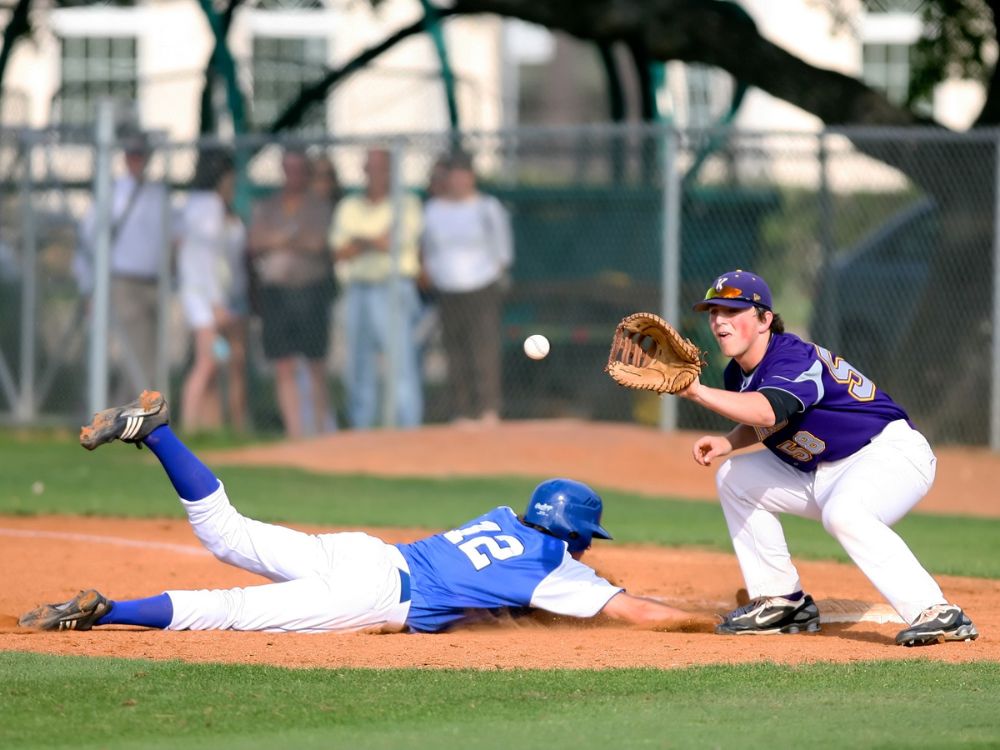Typically, in professional Major League Baseball (MLB) games, ties are not a possible outcome. Games continue with extra innings until a team wins. However, exceptions exist in certain contexts and leagues, such as in Japanese, Korean, or College baseball, where matches can end in a tie.
Baseball is a fascinating sport with a rich history and an array of intriguing rules.
One of the intriguing questions about baseball is whether a game can end in a tie.
Various factors influence this, ranging from the type of league, the level of play, to even the specific season of the year.
In this article, we will delve into this multifaceted topic.
Let’s get started!

Can Major League Baseball End in a Tie?
In Major League Baseball, ties are a rarity.
MLB games continue into extra innings until one team has more runs than the other at the end of a complete inning.
However, historically, there have been instances of ties due to weather conditions or darkness before the advent of stadium lighting.
Has There Ever Been a Tie in Baseball?
Yes, there have been ties in baseball.
Prior to the installation of lights in every MLB ballpark, games often ended in a tie due to darkness or bad weather.
These games were usually replayed from the start rather than resumed.
An exception to this was the infamous tie at the 2002 All-Star Game, which resulted in MLB deciding that all future All-Star Games would determine home-field advantage in the World Series.
Historical Ties in Baseball
Historically, ties in baseball have led to some memorable and notable moments. Before the advent of electric stadium lighting, tied games due to encroaching darkness were not uncommon. Here are a few examples:
The 1922 game between the Philadelphia Phillies and the Boston Braves ended in a 26-inning tie, which is still the record for the longest game by innings in MLB history.
The game was called due to darkness, and as there were no stadium lights, it couldn’t be continued.
Another infamous tie occurred during the 2002 MLB All-Star Game.
The game was called after eleven innings, when both teams ran out of available pitchers.
This outcome resulted in such a public outcry that it led to changes in All-Star Game rules, tying the result to home-field advantage in the World Series for the next fourteen years.
These historical ties have shaped the game of baseball, influencing both its rules and its culture.
They serve as reminders of the evolving nature of the sport and its response to the practicalities of gameplay and audience expectations.
Can Japanese Baseball End in a Tie?
Yes, games in the Nippon Professional Baseball (NPB), the highest level of baseball in Japan, can end in a tie.
If a game is still tied after twelve innings (or fifteen innings for playoff games), the game is recorded as a draw, contrasting the rule in Major League Baseball.
Can Korean Baseball End in a Tie?
In the Korean Baseball Organization (KBO), the professional baseball league in South Korea, games can also end in a tie.
If a regular-season game is tied after twelve innings, it is declared a draw. However, for playoff games, extra innings continue until a winner is determined.
Can College Baseball End in a Tie?
In NCAA college baseball, ties are rare but possible.
If a game is called due to weather, curfew, or other predetermined conditions, and it cannot be resumed or completed on another date, it can end in a tie.
Why Can Spring Training Baseball Games End in a Tie?
Spring Training games in Major League Baseball, used as practice matches before the season begins, can indeed end in a tie.
These games are primarily for player development and evaluation, so they often do not play extra innings to decide a winner if the game is tied after the regular nine innings.
Can High School Baseball End in a Tie?
In high school baseball, the rules vary by state and governing body, but many allow for games to end in a tie due to factors such as time constraints, lighting, or weather.
Each state or district establishes its own set of rules regarding game length and the possibility of ties.
The Implications of a Tie
The implications of a tie can be quite significant in any sporting context, including baseball.
In leagues where ties are allowed, such as the Nippon Professional Baseball (NPB) or the Korean Baseball Organization (KBO), a tie game can dramatically affect the team standings, especially as the season winds down.
Ties can affect the overall win-loss record, which is a critical factor when determining playoff eligibility and seeding.
A tie can be a missed opportunity for a win, impacting a team’s position in the standings.
Conversely, it can also save a team from a loss, which could be pivotal when the playoff spots are determined by thin margins.
Another important implication of a tie revolves around player health and fatigue.
When games extend into numerous extra innings, players are at a higher risk of fatigue-related injuries. For leagues that allow ties, these risks can be mitigated.
In conclusion, whether a baseball game can end in a tie largely depends on the specific rules of the league and the context in which the game is played.
While ties are uncommon in Major League Baseball, they are possible in other contexts like Japanese and Korean professional leagues, College, Spring Training, and High School baseball.
It’s one of the many aspects that make baseball such a diverse and interesting sport.